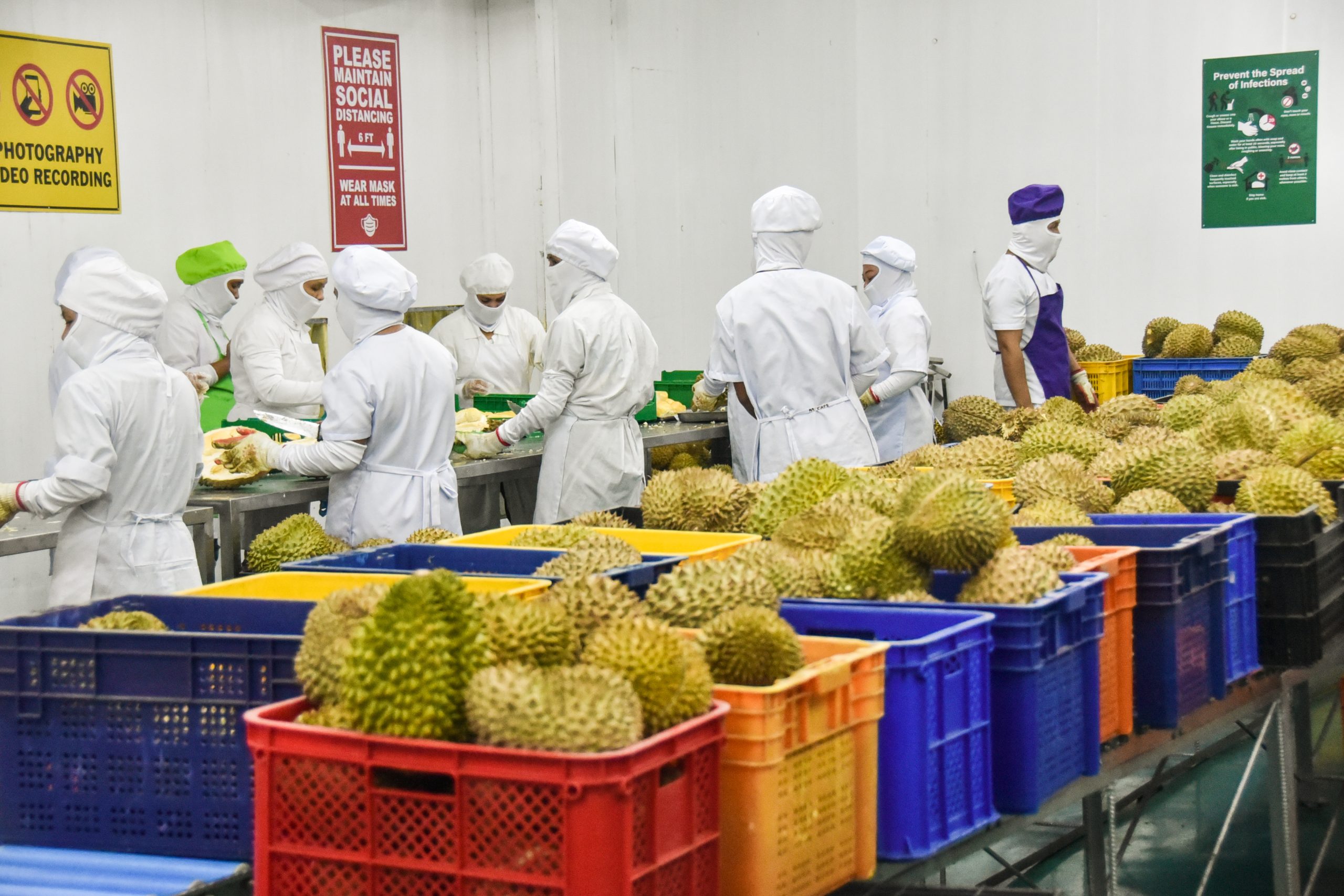
As part of the fruit export deal secured by President Ferdinand R. Marcos Jr. during his state visit in China, the Philippines is estimated to start its annual export of at least 54,000 metric tons of premium fresh durian to China this year.
Stakeholders are now beefing up their production to meet the high demands entailed by the agreement.
Davao City-based Eng Seng Food Products and Belviz Farms are just two of the private durian growers that are preparing for the Chinese market for Philippine durians.
“Pinakalamaking market ng durian ang China kaya very excited kami and expect na kung open na ang China market, target namin talaga weekly meron tayong container van export,” Eng Seng Food Products CEO John Tan said.
Tan pointed out that Eng Seng targets to export 300–500 container vans of durian this year.
The preferred durian varieties for export include Puyat, Duyaya, and D101 because of their golden yellow flesh and pleasant taste.
“I think the Philippines has a very big potential in the export market especially with our good varieties like the Puyat and the Duyaya varieties na malaki talaga iyong potential,” Durian Industry Association of Davao City (DIADC) President and Belviz Farms owner Emmanuel Belviz said.
According to Belviz, the DIADC is closely working with the national government, particularly the Department of Agriculture (DA), for the preparation of the required documents and protocols.
They are also helping the government assist other industry players especially small farmers to improve their production and comply with the export requirements, according to Belviz.
“This is both a blessing and a challenge. Blessing, dahil nga may market na tayo, good price. A challenge naman dahil this is an export market. We need to produce better durian fruits and a more food safe, dahil maraming certifications ang kailangan e. So hopefully, the association, together with the DA, can help these farmers to reach that market,” Belviz said.
Tan expressed the same sentiments that while Eng Seng applies Good Manufacturing Practices (GMP) and Hazard Analysis Critical Control Point (HACCP) principles, the production of good quality durian starts at the farms.
“Basta maraming trainings na nabigay ang DA na majority naman is aimed for quality production. This is a good chance na ang mga farmers, lalo na mga backyard farmers na majority ngang iyon iyong members namin will learn how to produce good quality na globally competitive na durian fruits,” Belviz explained.
Belviz added that the DA-Davao Regional Field Office (RFO) and the local government units are active partners of the DIADC. The DA also provided the association with harvesting vehicles, reefer vans, and other tools and equipment.
The Davao RFO is also working on the five-year development plan for the durian industry that will intensify technical support and the provision of quality planting materials, fertilizer and pesticide, equipment and tools, as well as the establishment of postharvest facilities.
Following the directives of President Marcos and DA Senior Undersecretary Domingo Panganiban, other DA-RFOs are also identifying expansion areas for durian production and encouraging more farmers to be Philippine Good Agricultural Practices (PhilGAP) certified and produce more durian for export.
“Plant more durian because ang market, ang demand ng durian ay napakalaki, especially with the opening of the Chinese market, sobrang laki at sobrang kulang ng durian natin dito. I encourage everyone to plant more durian,” Belviz said.
Belviz has a prediction that durian will be one of the country’s top export products in the next 5 years. ### (Gumamela Celes Bejarin, DA-AFID)













